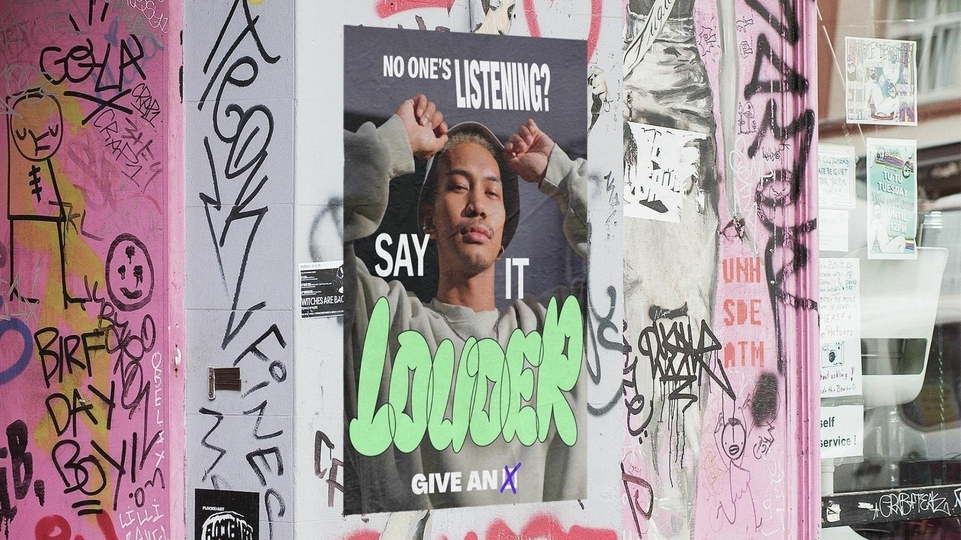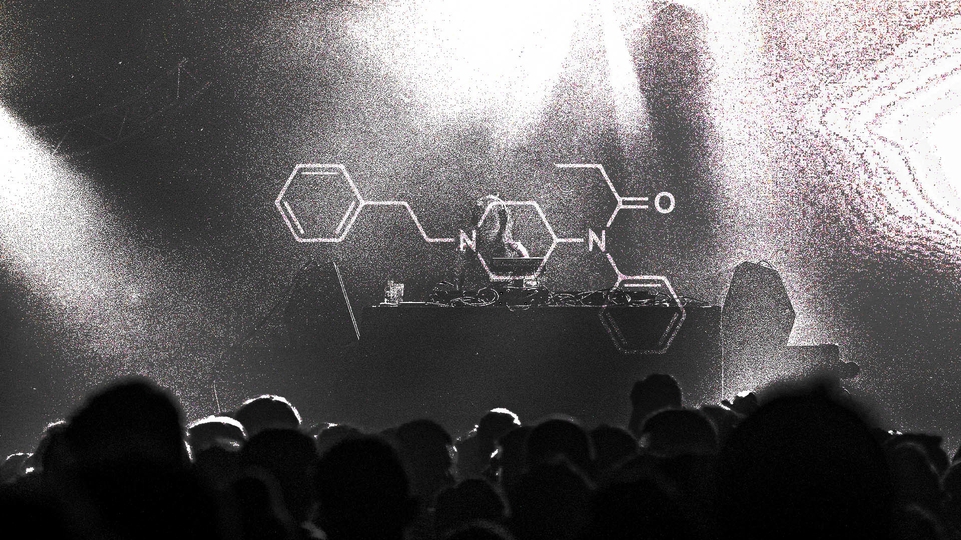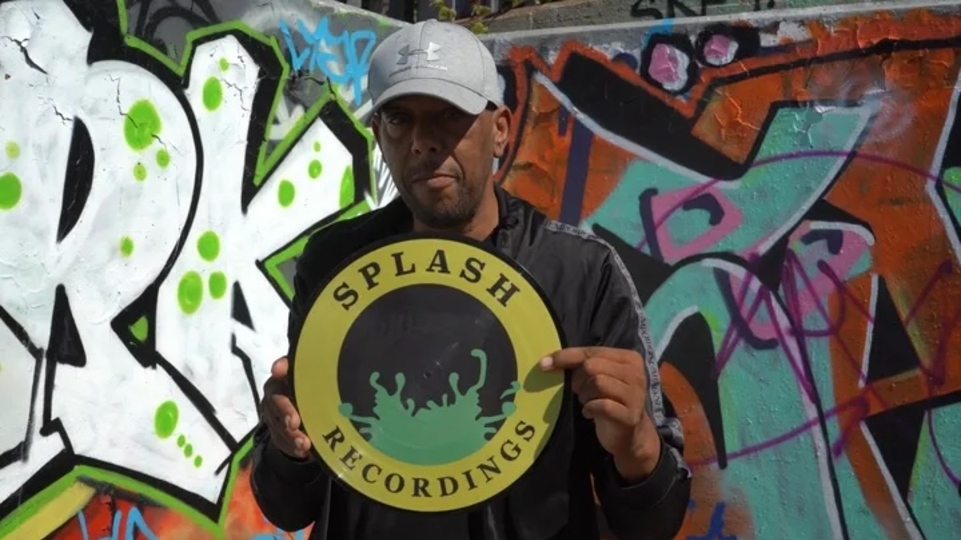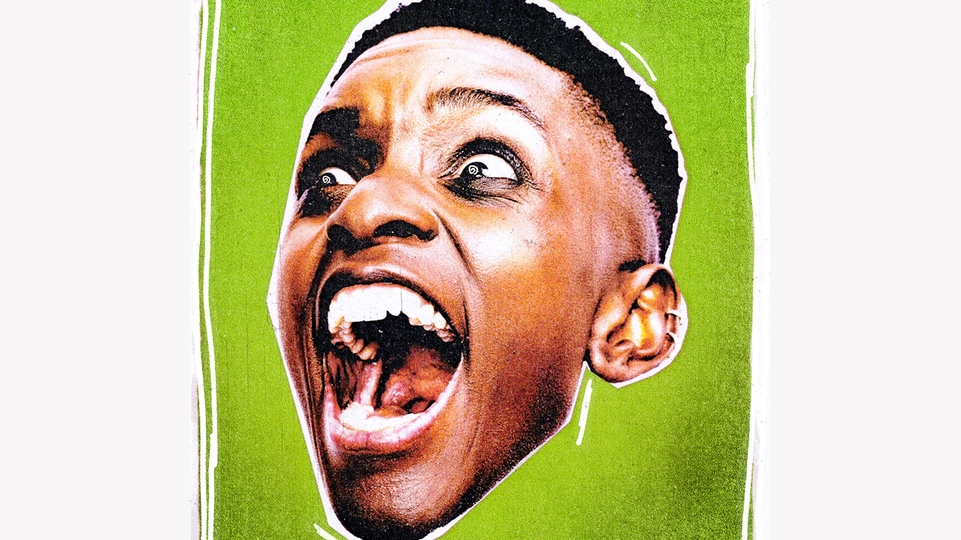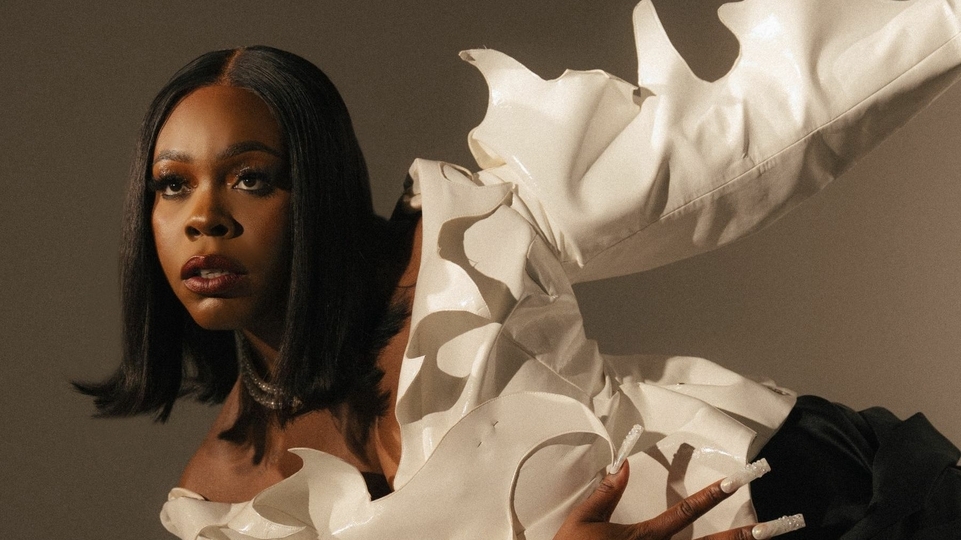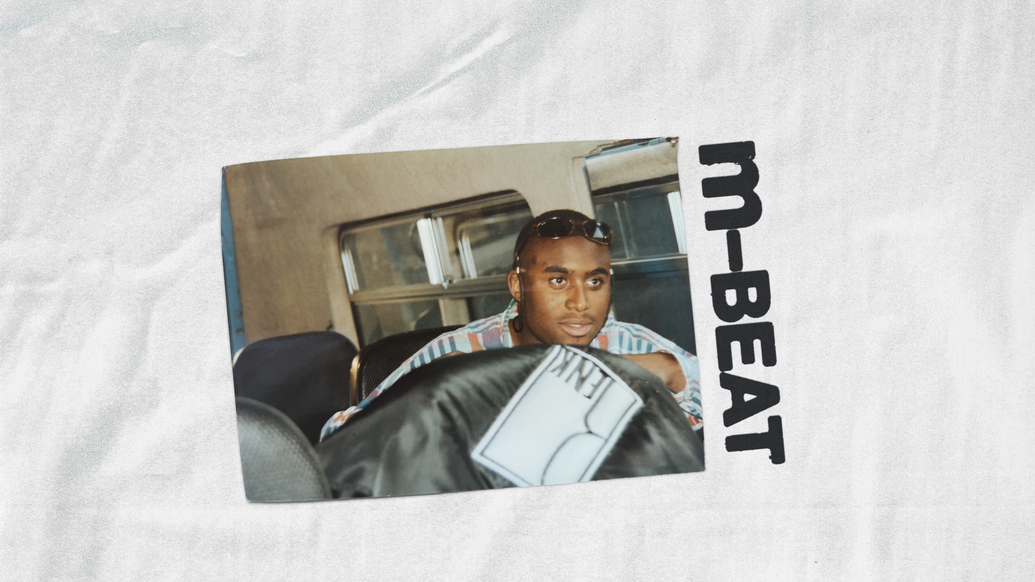
M-Beat: the return of a jungle pioneer
Jungle pioneer M-Beat made some of the genre’s biggest chart hits, but disappeared from the industry in 1996. Having gone through hardships and been widely ignored by the genre's historians, he's back with his first new music in 25 years, fired up, and ready to share his story
Some folk just exude music as if it’s pouring out of their skin. Their eyes spark up when they chat about beats. They can’t be stopped when they’re in full flow about the topic, or talk about a song without singing at least a bar of the lyrics. We all know these people. Chances are, you are one yourself. Sitting in a Hackney studio one Friday afternoon late 2021, DJ Mag is under no illusion that M-Beat certainly is one too.
“How the hell can anyone listen to music and not move around?” he shouts/laughs over a booming new fusion of drill, jungle and grime. He’s enthusiastic to the point of fizzing over. Any track he discusses will almost inevitably involve him breaking into a little bar or two or a quick drum rhythm on the studio desk. When he plays a new beat, he pushes the studio chair to its limit, rocking back and forth with a walloping grin on his face. Especially when he’s playing his own new material. The beats themselves are so fresh, he’s not quite ready for us to reveal what they are yet, but the man himself requires no introduction whatsoever.
Marlon M-Beat is one of jungle’s earliest breakthrough artists, whose records were pivotal during the early hardcore/jungle crossover era between ’91-’93. He was responsible for introducing the mainstream to the sound, with a string of the genre’s first big crossover anthems, such as ‘Sweet Love’ and ‘Incredible’, a track featuring General Levy that’s revered and sung along to with as much gusto in 2021 as there was when it was released in 1994. He’s also the only jungle pioneer to have performed on Top Of The Pops (no less than four times), and was the only jungle artist to score three consecutive top 20 UK hits in the ’90s. Besides Shy FX and his track ‘Original Nuttah’, no other producer has come close to presenting true jungle culture to the mass pop market.
Yet for all his influence, and his passion for music that runs ridiculously deep, Marlon hasn’t released an official beat since 1996. Aged no older than 21, he left the scene homeless and penniless.
“I never stopped listening to music, during all that time,” admits Marlon, who first found work driving taxis, before eventually settling into a successful career in IT as a consultant for major blue-chip brands like Maclaren Formula 1 and Lloyds Bank.
“Music is food for the soul. It’s soothed me through the hardest times. I just never made any of it for years and, yeah, thinking about it, I never listened to any jungle. Maybe it was some type of trauma?”
He laughs jokingly, but no one would blame him for turning his back on the sound he helped to bring to life. Within a year of his last appearance on Top Of The Pops, Marlon was skint and sleeping on a friend’s couch. From legend-in-the-making to a story of legend, his role as pioneer remained intact, but his status in the game lapsed. To this day, he claims he’s never been accounted to or paid any formal royalties for his ground-breaking hits. In fact, every M-Beat single or reissue since 1996’s ‘Morning Will Come’ (with R&B star Junior Giscombe) has been released without Marlon’s permission. And the person responsible for not paying him? His father — Renk Records co-founder Junior Hart.
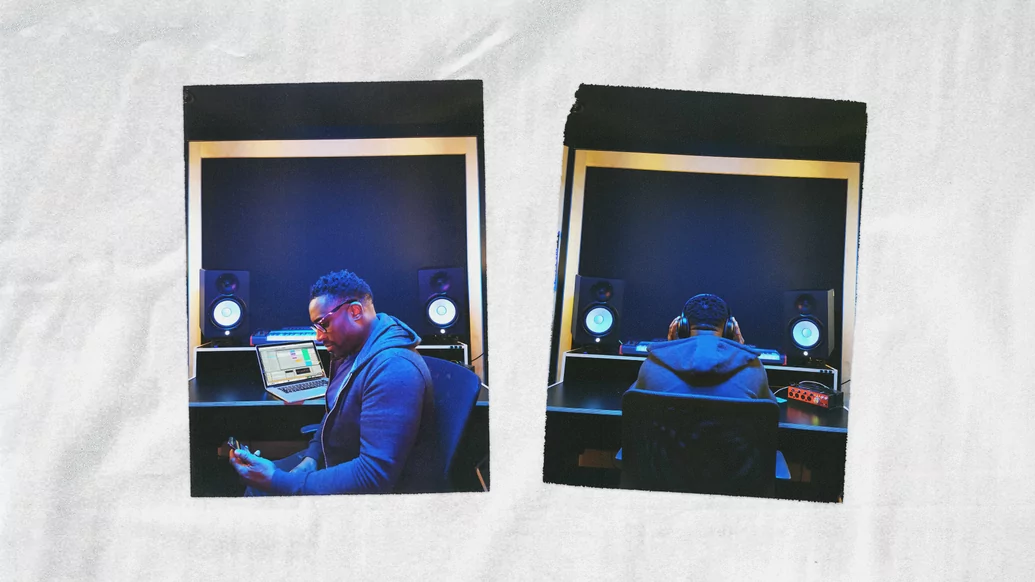
Back in action
Twenty-five years later, Marlon isn’t just ready to return, he’s positively amped. A dormant code running deep in his psyche has been triggered, and a whole wealth of ideas is spilling out at a rate of knots. Making up for lost time and rolling with a wingman who’s rooted in jungle and well-versed in modern production, they’re currently sitting on a bag of revolutionary tunes. Like M-Beat’s most famous tracks of the past — all of which brought together his love for dancehall, soul, reggae and breakbeats — these new creations are all heavily powered by fusion as they smelt aspects of soul, grime, drill, R&B, pop, trap, jungle and drum & bass in an exciting and unique melting pot. The pair of them have big plans, with an innovative, striking new brand and a body of music that sounds fresh and doesn’t kowtow to any current trends happening in music right now. Most importantly, there’s not a whiff of nostalgia or heritage to what they’re doing.
“I don’t want nostalgia, I want fusion! This music has always been about evolution!” Marlon says excitably. “I see too many people running after the past. You’re running backwards, bruv. Run forwards. A huge part of me just wants to give the past to my dad, put it in a box and leave it. It’s done! It’s over! But I know I need to tell my side of the story, just once and move on. I’m not going to tell it again.”
Before releasing his first music in over 25 years, Marlon wants to set the record straight and close this chapter of his past. It’s a chapter that’s been told by other people so many times, but never by the producer himself. Even in a recent book that explores the history of jungle through the tales of various seminal releases, the chapter on ‘Incredible’ only includes insight from his father and the vocalist General Levy.
“I didn’t vanish off the planet, I haven’t been locked away somewhere or living on a desert island, I’ve always been available to comment if people could be bothered to find me,” he laughs. “But I also have to say that I have no remorse, or regrets or any type of bitterness. I just want to put my story out there.”
It’s quite the story: on paper, Marlon was down as the co-founder of Renk Records, the label responsible for all the M-Beat hits. In reality, he explains how he never saw any accounts and was never paid any type of actual wage. He just lived at home and was given pocket money.
“I was just a kid,” says Marlon, who first stepped into his father’s studio at the age of 15 and made ‘Incredible’ when he was aged just 19.
“I had no clue about bills or costs or responsibilities. I was given enough money to fill the car up with petrol, and told I should be grateful for having a roof over my head and meals to eat. And for most of it, I was happy with that! I was left to do what I wanted to do, which was make music and be a studio lab rat. Making beats was literally the only thing I wanted to do, I was obsessed. All the other stuff around it? That wasn’t for me.”
When he went to raves and saw friends like Weekend Rush DJs Red Ant and Devious D reload his early bangers like ‘Booyaka’, and saw the crowd erupting, he describes the adulation he was getting as “a byproduct of making records”. Even down to his appearances on Top Of The Pops, something he was never particularly comfortable with, fame wasn’t part of the plan for Marlon. “None of it was,” he shakes his head. “The fame, the money, the success. Making music was what I adored, nothing else.”
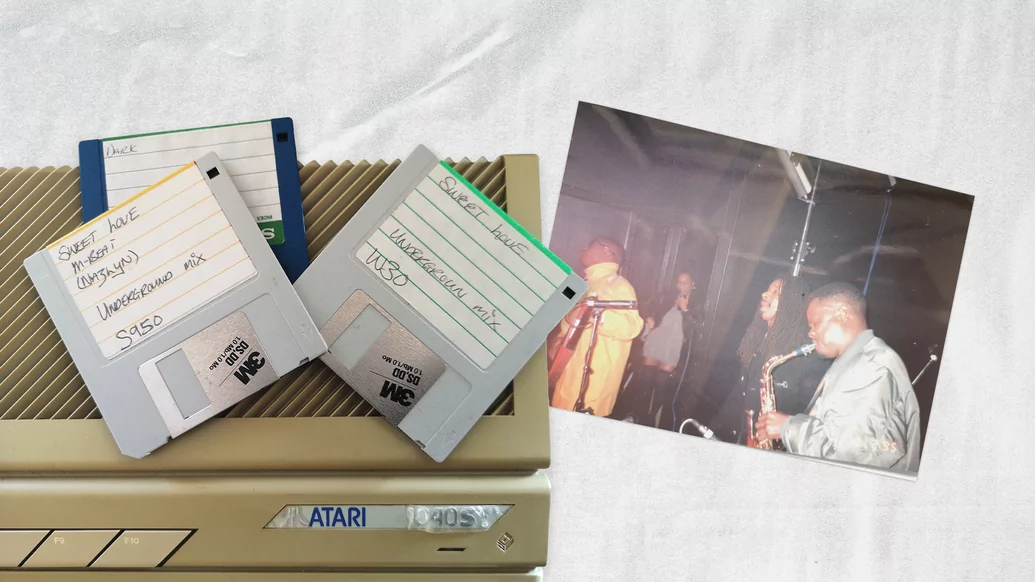
But as M-Beat became more and more of a household name, more things distracted him from the music. As the first ever jungle track to hit the UK charts, ‘Incredible’ became embroiled in controversy. General Levy was famously misrepresented in the magazine The Face, saying “I run jungle”, consequently causing rumbles in the infamous ‘Jungle Council’, who blocked the MC from the scene for many years. While this didn’t affect Marlon personally (his stripes as a producer were far too strong to be affected by any beef people had with Levy), his high profile did attract attention. “Friends at the club would be like, ‘Boy, you gotta have some nice money in the bank now!’” he recalls. “I’d always evade the question. I didn’t know what to say.”
Eventually tensions reached a peak and, after one particular confrontation with his father, he was promptly kicked out of the family home. Within months of collaborating with ’90s pop-soul megastars Jamiroquai (on the hit ‘Do You Know Where You’re Coming From’), he was homeless, and his career as a musician was put on ice. Yet despite all this, he holds no malice or anger, and is actually very quick to credit his father.
“You have to understand the ingredients of what your success is,” avers Marlon. “With dad’s good business acumen combined with my love for creating music, we were a powerhouse. I want this to be documented.”
In fact, Marlon spends a great deal of the interview putting his father — who had been involved in soundsystems for years, released a few records under the name the Beat Inspectors, and had promoted a series of early acid house parties — in a positive light. He speaks fondly of his father’s sense of futurism and love for technology, how he embraced the internet in its earliest dial-up forms, and even put on the first ever live jungle concert.
“All this needs documenting!” Marlon raves. “He was an innovator. That concert, which I think was in Walthamstow Town Hall, was a really special moment. As far as I know, it was the first time jungle was performed by a live band. This was in 1994 just as ‘Incredible’ was starting to blow up. And that was all down to dad. There would be no M-Beat without him.
“Ironically everything he taught me — how to be a man, how to be balanced, how to hold it down and not let things get to my head — held me through this,” continues Marlon, who tells DJ Mag how he’s attempted to reach out to his father on several occasions to tie up copyright issues and legalities, but has not been responded to.
“But he’s not done any of it himself. The way he’s treating me now isn’t the best. But the way he brought me up enabled me to get through this.”
Not just get through it, but to come out thriving with a completely invigorated passion for beats that he thought would never return. Having spent the last two years working on his next moves, it’s now almost time for him to reveal the next chapter. But only after putting this old one to rest once and for all.
“It’s funny,” he ponders. “When I was taxiing, I remember thinking, ‘If I could just afford a day to myself, get some fish and chips and sit in front of the telly on a Saturday night, that would be great’. I got more than that in the end, but I still wasn’t fulfilled. It was like, ‘Hang on, where’s that feeling?’ It still wasn’t there. So I set my targets higher and worked even harder, and it still wasn’t there. Now I’m back making music, that feeling’s returned.”
And with that, he puts on another fresh beat, his eyes spark up and he instantly starts fizzing away again, dancing in his chair, drumming on the desk and rapping to the bars. He’s back in his happy place, a place that, had things been different, he may never have left. Something tells us 2022 is going to be an exciting year for M-Beat.

